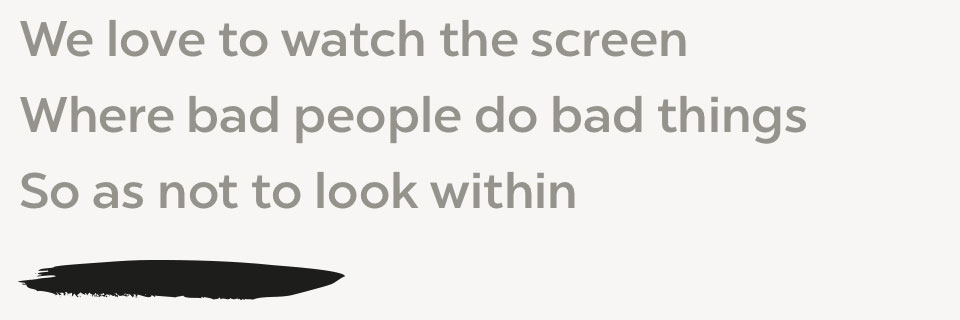Our world of fiction is filled with evil characters who seek to dominate the world, immerse it in darkness, let loose destruction and mayhem, and do other “evil” things.
While such stories can be entertaining, they contribute to an already less-than-responsible world and complicate accountability. Here’s how….
The vast majority of people have good intentions. They don’t identify themselves as “aligning with evil” or (consciously) gain pleasure through the suffering from others like in the movies. They genuinely believe they’re doing the right thing. The famous gangster, Al Capone claimed he was performing a “public service” for the people of Chicago. Consider that he truly believed this. It’s well-documented that most criminals cleverly justify their actions, to avoid accountability–not just to others, but first to themselves.
There is a significant distinction that our media and culture usually fails to make:
There can be a disconnect between someone’s good intentions and the goodness of their actions. Accountability means shining a light on that gap.
It’s easier to think someone is evil than to think they’re dangerously misguided but have the best of intentions.
Why?
Because anyone can have the best intentions and do something bad. We all sometimes do something with good intentions that turns out badly. That’s part of being human. Accountability means examining the gap, after it happens, and is an important form of responsibility. That’s how you grow.
Good Intentions Don’t Absolve Accountability
Unfortunately, rather than doing this, many people make excuses by focusing on their good intentions, as if that absolves them from accountability. “I’m sorry, but I didn’t intend to hurt you.” Nobody said you did, but that’s beside the point. Even in law, this is well-understood, which is why there is a difference between premeditated murder and manslaughter: but there are still consequences.
Back to media: notice how the difficult nuances of motivations and intentions are rarely addressed in our world of fiction. The message is: “Only bad people do bad things, so if you have good intentions, it means you’re good. Then, if you do a bad thing, it’s not your fault and you don’t really have to face accountability, because you didn’t intend for it to happen.”
While the worlds of Star Wars and Lord of the Rings operate this way; unfortunately, the real world is not so simple. If merely having good intentions were enough, the world would look quite different. As the saying goes, “The road to hell is paved with good intentions.”
Sometimes accountability means a manager must help an employee explore how their good intentions went awry. This means getting underneath, “But I didn’t intend for that to happen.”
One of the primary reasons people have a hard time owning mistakes and become defensive was discussed brilliantly in Brene Brown’s book Daring Greatly. It’s shame: aided and abetted by the fictional notions that only bad people do bad things. Sometimes good people make mistakes, too. Good people need accountability to support their growth.
Have you ever had the experience that someone was so busy defending themselves that you couldn’t even find out what really happened? That’s because that person was in the grip of shame? How do you make an employee feel safe enough to be able to drop their defenses and be Clear and Open with you about what happened?
All of Clear and Open’s courses are dedicated to supporting this, especially The Accountability Path. It’s a five-step process to support your people to take ownership, become more responsible, and get curious about the gap between their good intentions and their mistakes. That’s what creates personal engagement, and your people will thank you for it.


